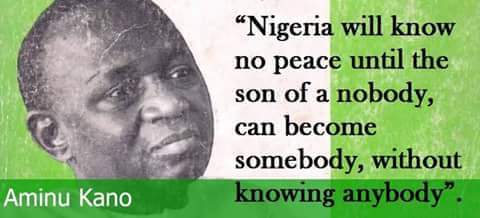Nearly Not One Guardian Angel Who Can Read the Riot Act to Nigerians on a National Scale?
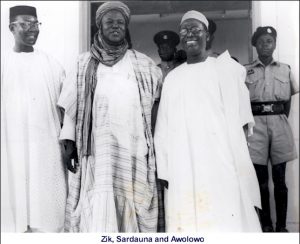
Did any of the founding fathers have a calming voice beyond his own region? That’s probably where the problem started from
How come Nigeria has not got anyone who, when the formal structure of power fails, can calm the country to order based simply on his or her unquestionable moral authority? Is it because we have all sinned and come short of such stature or is it because Nigeria is too diverse? Could it be that we are too modernist to have a place for that? It is unlikely that we are too modernist, Nigeria being too noisy and chaotic to make any such claims. With markets, mosques and churches as well as cultural activities every other corner irrespective of residential, commercial or whatever classifications, there is no basis for making a modernist claim. Modernity is about some level of quiet in appropriate places. Similarly, every society in (post) modernity is diverse as diversity is now beyond cultural identity by which we still tend to solely reckon with it in Nigeria. In that sense and even in the sense of cultural identity, Nigeria is not too diverse to lacks voices who can read the riot act to it at certain points in time, such as now.
Today in Nigeria, there is that condition which late Senator Chuba Okadigbo would say is marked by dynamic inactivity – a lot of activities going on but there is not much movement, at least not forward. The trigger for the current season of dynamic inactivity must be the fight between two elephants in the town called Nigeria. The government is fighting corruption and corruption is fighting back and there is total bedlam, characterised mainly by the capture and conversion of the social media into a space for the provocation and promotion of barbarous violence, mudslinging, false heroes, claims and counter claims of Islamisation, the loud echoes of herdsmen and ‘herdsmen’ and sundry false flags. It is a season of ‘news from nowhere’ and nobody knows where truth is hiding or what is true and what is not true. As much as a lot of what are in circulation are true, a number of them are simply falsehood circulated to overwhelm the regime. Everybody knows that. Unfortunately, the regime itself is ineffectual.
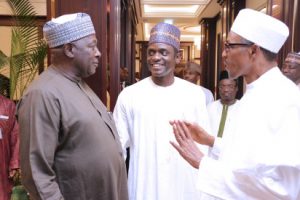
President Buhari and some of his aides
And there is even something unforgivable on the part of the government whose sense of anti-corruption war is what fundamentally provoked the situation into being. In spite of adequate warning to it, its anti-corruption strategy remained a one-dimension idea of pursuing the ‘bad guys’ without ever thinking that ‘bad guys’ could also fight back. It is precisely that thought process that has brought about the stalemate even though the government was advised many times over to rely either on mass conscientisation or build elite consensus around why some members of the elite should come to grips with the reality of being punished so that the system could be saved. In the 21st century, there are no alternatives to taking one of these options because power is much more diffused. ‘Bad guys’ have a lot of rooms for manoeuvre against any government. The state can never be that powerful as to be uncontested by elements who can deploy vast amounts to buy their own security. Of course, corruption is evil, immoral and cheating but corrupt people also feel shame and they endlessly assert their innocence, no matter what evidences are there.
Be that as it may, why doesn’t Nigeria appear to have any individuals or a cohort with the moral authority to read the riot act to the country and undo the social stalemate occasioned by the current balance of terror? Technically, there is an element of absurdity in talking about unique moral authority in today’s society. Theoretically, every 18 year old is assumed to know the difference between right and wrong. If his or her family has not drummed it, then religion would have done it. If all two missed doing so or doing so adequately, the school system would do it. In extreme cases, the law would take it up with a reprimand that should reform the laggard. What if all these are there but we still have a riotous society, isn’t the informal leadership sector a beautiful recourse? And is it not a cause for national security alarm should that sector be found to be empty?
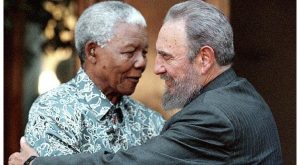
Would the entire South Africa of today oblige Mandela were he still to be alive?
In posing this, one is imagining Nehru or Ghandi in India, Mandela in South Africa, the Queen in the UK. Whether they can still successfully and effectively read the riot act to their various societies were they still to be alive is a different thing. Certainly, the Queen has tremendous capacity to rupture threats to the social stability in the UK in the same way that most other monarchs in Europe can, using vast informal networks. Where is the equivalent of any of these in Nigeria today?
It appears no one can be found. It is doubtful if anyone has existed on that couch. Who would be such potential candidates now? Former Heads of State are most likely to fit the role. Nigeria is so big that they are more likely to be the one to be known across the country down to the grassroots as for what they say to have impact. But, is there any such former Head of State now? There are three of them that can be cited. There is General Gowon, General Obasanjo and General Abdulsalami Abubakar. Gowon is seen as the Abe Lincoln of Nigeria, not seen as greedy and selfish. In fact, Professor Mvendaga Jibo recently referred to him as having run a civilised government during his time. The question, however, is whether youths on rampage in Southern Kaduna or Onitsha or OPC militia on the move would retreat from the streets on the strength of a Gowon appeal for calm.
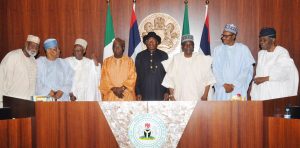
Most of the former Heads of State: powerful actors but voice over Nigeria?
Is it any different with Gen Obasanjo? It is difficult to say. Last week, for example, he intervened to say that waiting for 2019 is the only option for anyone who doesn’t like President Buhari. Even his worst critic cannot say that his intervention didn’t help in bringing down the temperature. Some years back, he tried to intervene in Boko Haram. To the extent that he alone tried to do that, it was something to his credit. So, Obasanjo comes very close to it more so that whether they abuse him or not, he goes ahead to make his point as he thinks the occasion demands. So, Obasanjo might have been that voice that can read the riot act on a national scale if only there isn’t this common assessment that everything he does has a hidden personal agenda beneath. It problematises his interventions but is this a case of what the Chinese would say about not minding the color of the cat once it catches the mouse?
General Abdulsalami Abubakar is into peacemaking. Perhaps because he handed over power, people do not associate him with ‘longer throat’ for political office and the cloak and dagger games that go with it. So, he doesn’t have the baggage that undermines his interventions. However, the same question applies: would youths out there looking for trouble in some remote corners withdrawal from action in obedience to Abdulsalami’s appeal based on unique moral authority? This is the crux of the matter.

Gen T Y Danjuma
General TY is credited with a mental hold on many players to the extent that there are few people who would reject invitation to a meeting he calls to resolve whatever issue. That is, they may not agree with him at the meeting but they would hardly reject his invitation. In his own case, attendees at such a meeting would stretch from the Middle Belt, the North East where he comes from, the North West which accepts him as a northern leader, the South West where he is a business mandarin and the South-South where his wife comes from. He might only not get plenty attendees from the South East. Of course, he is additionally located in the military, NGO, media and philanthropy. Although his hold on people comes more from certain prestige of personality rather than tangible counts, he has also been one of the most systematic social engineers through philanthropy. It would be difficult to find anyone stepping into his shoes in terms of the degree of that hold should push come to shove and he had to deploy it. This perceived hold has, however, not been tested.
The last military officer to be treated would be Colonel Abubakar Dangiwa Umar. His origin in the north, military career, intervention in June 12, aloofness from government since then and advocacy generally positions him to have the power of a calming voice national scale. There are no obvious signals against his voice having impact across the national fault lines. But being a country with many autonomous centres of reasoning, this has to be tested to be seen. This is nearly the same case with General Martin Luther Agwai, an emergent voice on reconciliation except that his own penetration is still in the making.
Former President Shehu Shagari would hardly fit into that role. It would be difficult for any of those who occupied that office on a partisan platform to be. The level of performance and sense of fairness or inclusivity required to attain that stature in popular psychology is unthinkable for a party leadership yet in spite of the honesty and humility of a person like Shagari.
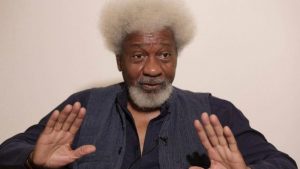
Would Kongi be obliged on a national scale?

What about Achebe in his life time? He, with Soyinka and J. P Clark, went to request that Gen Mamman Vatsa’s life be spared. The military could not even oblige the nation’s foremost creative artists!
Outside the cycle of former presidents and Heads of State, is there anyone from, say, the civil society with that mystique or charismatic authority to be a national calmer? Wole Soyinka is known throughout the length and breadth of Nigeria, at least to those who could stage a counter offensive to considered assault on their privileges but not the trouble makers likely to stage a street action in pursuit of certain interests. In other words, his intervention will be limited at the class level, even in Yorubaland, depending on the issue and at the national level because of perception of him to be a defender of Yoruba interests. In this context, Obasanjo is still notches ahead of Kongi.
From among the traditional cum religious leaders, the Sultan of Sokoto would appear to have some mystique, more so with his forays into the east and south-south states such as Akwa Ibom and Cross Rivers, these being predominantly Christian areas. While such interactions and the national spread of the Muslim population gives him a national calming voice status, the Muslim essentialism of his position limits the impact of that voice. There is thus a paradox in his own case. His observable efforts to always explain and to interact across the country are checkmated by the distance and fear of each other between the faiths as for his voice to have a calming impact on youths out staging trouble somewhere in the country, even if the place is in the north and even if they are Muslims.
What about Archbishop John Onaiyekan? Looks like a virtual replica of the Sultan. There is no doubt that here is a voice with a vast national audience, including Yoruba Muslims but still a voice that would not carry in certain quarters and on certain issues. But here is one voice that goes truly far, territorially, across the regions and across cultural identities and, of course, the religious terrain.
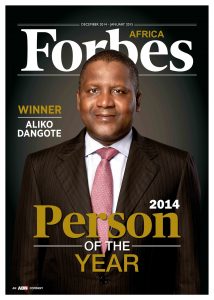
Can he calm a breakdown?
From business, Aliko Dangote can certainly sort out a crease here and there among moguls, peers and other fractions of the elite but would hardly be a calmer in the event of national breakdown. He has got the bucks but not the mystique yet even as he is the one with the most to gain from the existence of voices with a calming effect on the power of moral authority.
Whom do we get among the political leaders? Is there a politician in this country who is iconic in popular psychology? If we take Atiku Abubakar from among the traditional politicians, he definitely has a mental hold but on members of his political network that he can call to a meeting from which they will come out with their own standpoint. Although this is a national network, it is exclusionary for those who are not in that camp or tendency. So, he doesn’t make the OBJ waves. What wavelength he operates is that of a traditional politician, not otherwise. This is not to say that he cannot overwrite his opponents the moment the sort of ideas he subscribes to should resonate with the national mood, leaving his critics and opponents stranded. He has the advantage of transcending ethno-regional and religious barriers but would his voice impose a moral constraint to obey on his listeners? Similarly Ahmed Bola Tinubu, former governor of Lagos State and APC chieftain definitely has his élan. It is believed that youths out in Lagos, for instance, would be restrained by him. The question is, how far beyond Lagos can his voice go?
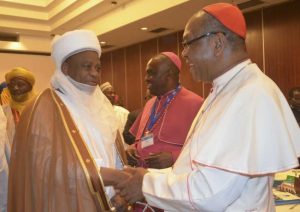 From this survey, apart from Obasanjo, TY Danjuma, the Sultan and Onaiyekan, it is difficult to find voices with effective calming impact on a national scale based on undisputed moral authority, however we understand undisputed moral authority. Others are territorially and/or culturally specific or limited. Sheikh Dahiru Bauchi and Sheikh Ibrahim Saleh would be good examples. In the case of south east, a name repeatedly cited is Prof Anya Anya. That’s certainly an elite voice with impact across the country at that level but unlikely to extend to the yahoo-yahoo generation. In the south east, no one with the Ojukwu mystique exists now. Edwin Clark must be a calmer in the south-south, seeing how he blasted the avengers recently. But he doesn’t have a national audience. Neither does Ledum Mittee whose close shave with death ought to make him a voice of wisdom.
From this survey, apart from Obasanjo, TY Danjuma, the Sultan and Onaiyekan, it is difficult to find voices with effective calming impact on a national scale based on undisputed moral authority, however we understand undisputed moral authority. Others are territorially and/or culturally specific or limited. Sheikh Dahiru Bauchi and Sheikh Ibrahim Saleh would be good examples. In the case of south east, a name repeatedly cited is Prof Anya Anya. That’s certainly an elite voice with impact across the country at that level but unlikely to extend to the yahoo-yahoo generation. In the south east, no one with the Ojukwu mystique exists now. Edwin Clark must be a calmer in the south-south, seeing how he blasted the avengers recently. But he doesn’t have a national audience. Neither does Ledum Mittee whose close shave with death ought to make him a voice of wisdom.
Is there any columnist or anchorman/woman in this country today whose voice can halt a breakdown of law and order across Nigeria? It is possible but unlikely, with particular reference to access to the social class of the most likely executioners of violent conflict. Any sports man or woman such as Victor Moses, on account of unique, heart rendering experience? Perhaps, if this were a nation that has any serious concern with leadership recruitment and grooming.
If there are no human beings with the mystique to successfully calm the nation, is there a single national institution that has that ability? The National Council of State would appear to be such an institution but nobody gave it any such doubt in the course of reporting this piece.
Could it be the case that, save few cases, there are rarely individuals with such mystique capable of giving their overwhelming influence over a nation whether they exercised or never exercised political power? Why might Nigeria not have been one of such few instances? All down to the accidents of history? From all indications, the progressives would have it easier, cheaper and earlier to produces such personalities if what was developing across the parties in 1979-83 had continued. At a time when the formal system is failing, regime after regime, thinking about the informal leadership in relation to law and order may not be a bad idea. It is not only in Nigeria. The concept of Council of Elders is not so strange anymore across the world in a rejuvenated sense. Want to think about that, with particular reference to forgiveness, reconciliation and new beginning as opposed to hatred and violence?

